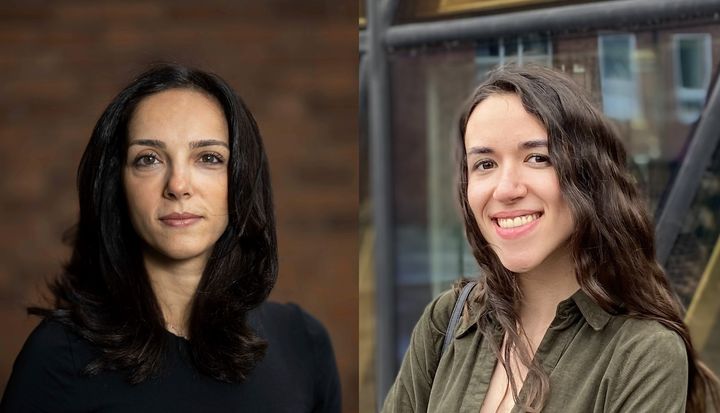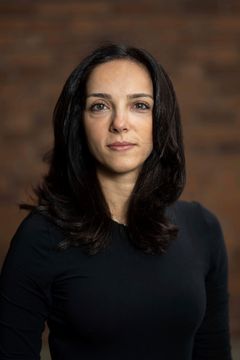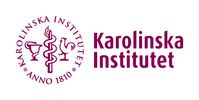Women who suffer pregnancy complications have fewer children
Women who suffer severe complications during their first pregnancy or delivery are less inclined to have more babies, a study published in JAMA by researchers at Karolinska Institutet reports. Given the recent steady decline in birth rate in Sweden, the researchers propose monitoring in antenatal care to address the problem.

Women who suffer severe complications during their first pregnancy or delivery are less inclined to have more babies, a study published in JAMA by researchers at Karolinska Institutet reports. Given the recent steady decline in birth rate in Sweden, the researchers propose monitoring in antenatal care to address the problem.
“The clinical monitoring of these women is essential, and they need individualised advice on possible future pregnancies,” says the study’s first author Eleni Tsamantioti, doctoral student at the Department of Medicine in Solna, Karolinska Institutet.
Birth rates and fertility have both been in steady decline in Sweden over the past years. In this new population-based study, the researchers have studied the association between severe maternal morbidity in first-time mothers and the likelihood of their having a second baby. The study comprised over a million women in Sweden who had their first baby between 1999 and 2021.
“We found that the likelihood of having more children was much lower in women who had experienced severe complications during their first pregnancy, delivery or postnatal period,” says the study’s last author Neda Razaz, associate professor at the same department. “Such events can often have a physical and mental impact on women for a long time to come.”
All in all, 3.5 per cent of the first-time mothers in the study suffered serious complications and were 12 per cent less likely to have a second baby. Most impacted were women who had experienced cardiac complications, a ruptured uterus or severe mental health problems, who were 50 per cent less likely to have another birth than women who had not experienced such complications.
Women who needed respiratory care or who suffered a cerebrovascular accident like stroke or intracranial haemorrhage were 40 per cent less likely to have a second baby. Acute kidney failure, severe preeclampsia and blood clotting were also associated with a lower probability of a second pregnancy. The researchers also compared the women with any sisters they had to control for familial factors.
“The reasons are hard to speculate on and may result from multiple factors, such as decreased desire for more children, trauma, infertility related to psychiatric medications, or lack of health counselling,” says Tsamantioti. “Proper support and monitoring by antenatal care staff is therefore essential for women who have suffered serious health problems during pregnancy or delivery.”
The study was financed by grants from the Swedish Heart-Lung Foundation, Region Stockholm, the ALF scheme and the Swedish Research Council. There are no reported conflicts of interest.
Publication: “Association of Severe Maternal Morbidity With Subsequent Birth”, Eleni Tsamantioti, Anna Sandström, Charlotte Lindblad Wollmann, Jonathan M Snowden, Neda Razaz, JAMA, online 25 November 2024, doi: 10.1001/jama.2024.20957.
Nyckelord
Kontakter
Eleni TsamantiotiDoctoral student at the Department of Medicine, Solna, Karolinska Institutet
eleni.tsamantioti@ki.seNeda RazazAssociate professor at the Department of Medicine, Solna, Karolinska Institutet
Tel:+46 76 173 9808neda.razaz@ki.sePress OfficeKarolinska Institutet
Tel:+46 (0)8 524 860 77pressinfo@ki.seki.se/pressroomBilder


About Karolinska Institutet
Karolinska Institutet is one of the world’s leading medical universities. Our vision is to advance knowledge about life and strive towards better health for all. Karolinska Institutet accounts for the single largest share of all academic medical research conducted in Sweden and offers the country’s broadest range of education in medicine and health sciences. The Nobel Assembly at Karolinska Institutet selects the Nobel laureates in Physiology or Medicine.
Följ Karolinska Institutet - English
Abonnera på våra pressmeddelanden. Endast mejladress behövs och den används bara här. Du kan avanmäla dig när som helst.
Senaste pressmeddelandena från Karolinska Institutet - English
POTS common in patients with long COVID3.10.2025 11:33:37 CEST | Press Release
A new study from Karolinska Institutet in Sweden shows that an unusual heart rhythm disorder, POTS, is particularly common in people with long COVID. The majority of those affected are middle-aged women. The study is published in the scientific journal Circulation: Arrhythmia and Electrophysiology.
Simple test can predict risk of severe liver disease29.9.2025 09:00:00 CEST | Press Release
A new study from Karolinska Institutet, published in the scientific journal The BMJ, shows how a simple blood analysis can predict the risk of developing severe liver disease. The method may already start to be applied in primary care to enable the earlier detection of cirrhosis and cancer of the liver.
Press invitation: Announcement of the Nobel Prize in Physiology or Medicine 202523.9.2025 13:00:00 CEST | Press Invitation
The Nobel Prize in Physiology or Medicine 2025 will be announced on Monday October 6 at 11.30 am CEST (at the earliest).
How mutations in bodily tissues affect ageing20.8.2025 11:00:00 CEST | Pressmeddelande
Two new studies from Karolinska Institutet in Sweden have investigated how mutations that occur in muscles and blood vessels over time can affect ageing. The studies, which are published in Nature Aging, show that such mutations can reduce muscle strength and accelerate blood vessel ageing. The results can be of significance to the treatment of age-related diseases.
New research confirms that neurons form in the adult brain3.7.2025 20:00:00 CEST | Pressmeddelande
A study in the journal Science presents compelling new evidence that neurons in the brain’s memory centre, the hippocampus, continue to form well into late adulthood. The research from Karolinska Institutet in Sweden provides answers to a fundamental and long-debated question about the human brain’s adaptability.
I vårt pressrum kan du läsa de senaste pressmeddelandena, få tillgång till pressmaterial och hitta kontaktinformation.
Besök vårt pressrum